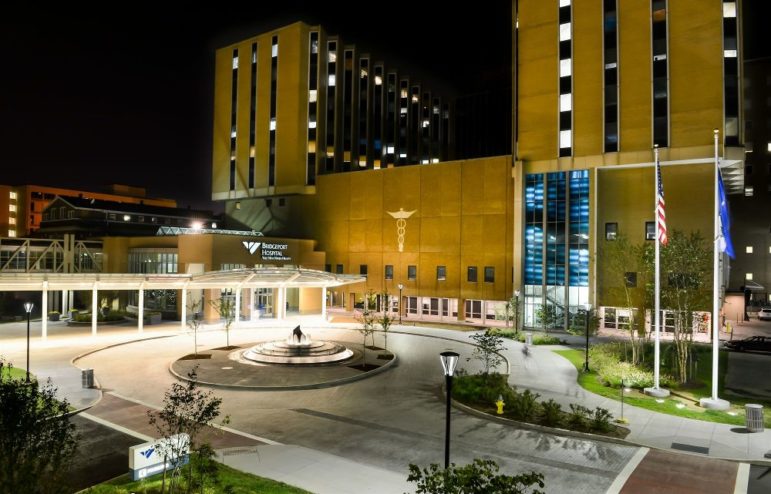A hysterectomy performed on a patient based on a faulty test result, and the death of two patients after failing to receive necessary monitoring or medication, failure to immediately investigate a complaint of patient abuse by a doctor, were among the incidents cited in the latest round of hospital inspection reports conducted by the state Department of Public Health (DPH).
The 24 new reports cover state inspections that took place at hospitals last year and earlier this year.
At Bridgeport Hospital, a patient underwent a total hysterectomy after her biopsy results were contaminated by another patient’s.
The patient had a hysteroscopy procedure on Dec. 3, 2018, during which a biopsy was taken. On Dec. 6, a pathology report said the biopsy was “positive for fragments of high-grade serous carcinoma.” The patient had a total hysterectomy at another hospital on Dec. 28, according to the report.
The second hospital found no significant abnormality in tissue and lymph nodes following the surgery, so it re-examined Bridgeport Hospital’s test results. Staff at the second hospital found Bridgeport’s results did show a tumor was present, so staff at the second hospital determined the tumor had either been fully removed during the initial biopsy or the test results were incorrect.

Bridgeport Hospital was cited by CMS after a patient underwent a hysterectomy following a faulty test result.
According to the report, Bridgeport Hospital found the patient’s slide had been contaminated with another patient’s pathologic material, and the first patient received the hysterectomy based on that contaminated sample. Another patient’s sample also was contaminated – by the same material – but that contamination didn’t change the course of that patient’s treatment.
Following the incident, the hospital was sanctioned by the Centers for Medicaid and Medicare Services and ordered to cease all histopathology at its lab, said hospital spokeswoman Dana Marnane. The sanction began in early February and was lifted in early March.
“In 2018, unintentional human errors occurred in Bridgeport Hospital’s laboratory and while these were exceptionally rare and unrelated, that makes no difference to the patients who were harmed,” she said. “We have offered our heartfelt apologies to the patients and their families and have pledged to do better in the future.”
Bridgeport Hospital’s laboratory underwent two independent reviews and subsequently underwent significant redesign, including changes in laboratory oversight, improvement in laboratory processes and rigorous monitoring of operations, Marnane added.
This wasn’t the first time the hospital had violations pertaining to sample mix-ups. It was fined $150,000 and sanctioned on Nov. 29, 2018, by CMS, which barred it from testing or reporting any patient test results in the special of cytology after the hospital erroneously switched eight patient specimens. In one of those cases, a woman received a hysterectomy based on someone else’s test results. CMS also canceled the hospital’s approval to receive reimbursement payments from Medicare and Medicaid for the specialty of cytology, effective Nov. 29, 2018, and cytology testing for Bridgeport Hospital was temporarily outsourced to Yale New Haven Hospital.
At St. Vincent’s Medical Center in Bridgeport, the hospital failed to ensure cardiac monitoring was done in a timely manner for three patients. In one case, a patient was admitted to the observation unit with chest pains, the record failed to show cardiac monitoring took place during an almost two-hour timeframe, and the patient later died from cardiac arrest.
At Lawrence + Memorial Hospital in New London, a patient died after not being administered antiseizure medication during a 10-day hospital stay in March 2017, the inspection report said. The patient was admitted on March 18, 2017, and released 10 days later, but was readmitted to the hospital hours later actively seizing. Despite treatment efforts, the patient died April 11, 2017, the report said.

Hartfordhealthcare.org
Inspectors found that Hartford Hospital did not immediately investigate a complaint of patient abuse.
At Hartford Hospital, an allegation of patient abuse by a doctor was not immediately investigated, the inspection report said. On Jan. 9, a patient underwent a procedure that included the insertion of a pacemaker, during which a nurse saw a doctor “slam his hands down on the mid-abdomen of the patient,” causing the patient to moan.
An internal complaint was filed against the doctor but no follow-up had occurred and “the ball had been dropped,” the report said. The doctor eventually was questioned by the chief of cardiology, and on Feb. 26 the doctor voluntarily relinquished privileges at the hospital.
St. Francis Hospital and Medical Center was cited for failing to keep a suicidal patient free from self-harm. The patient arrived in the Emergency Department on Jan. 2, 2019, after trying to commit suicide. The patient was put on constant observation but ingested lithium while there. The patient was admitted to an in-patient psychiatric unit on Jan. 4 but, over the course of the next few days, inflicted self-harm by repeatedly banging his or her head against a wall, swallowed a paperclip, and wrapped socks around his or her neck in an attempt to choke.
A patient admitted to Bristol Hospital for generalized weakness, diarrhea and vomiting and found to have an infection was not treated for the infection and died two days later, inspectors reported. Another patient in a seclusion room fell and suffered a head injury. The patient died 12 days later.
After inspection reports are sent to the hospitals, each submits a corrective action plan that requires DPH approval. The corrective action plans are included in C-HIT’s database.
Inspectors from DPH generally survey Connecticut hospitals in unannounced visits every two to four years. They tour facilities, observe staff in action and examine documents. Though hospitals are surveyed every several years, DPH usually inspects them more often in response to complaints and investigations, according to DPH.
C-HIT Assistant Editor Bonnie Phillips and C-HIT Data Specialist Matt Wynn contributed to this report.